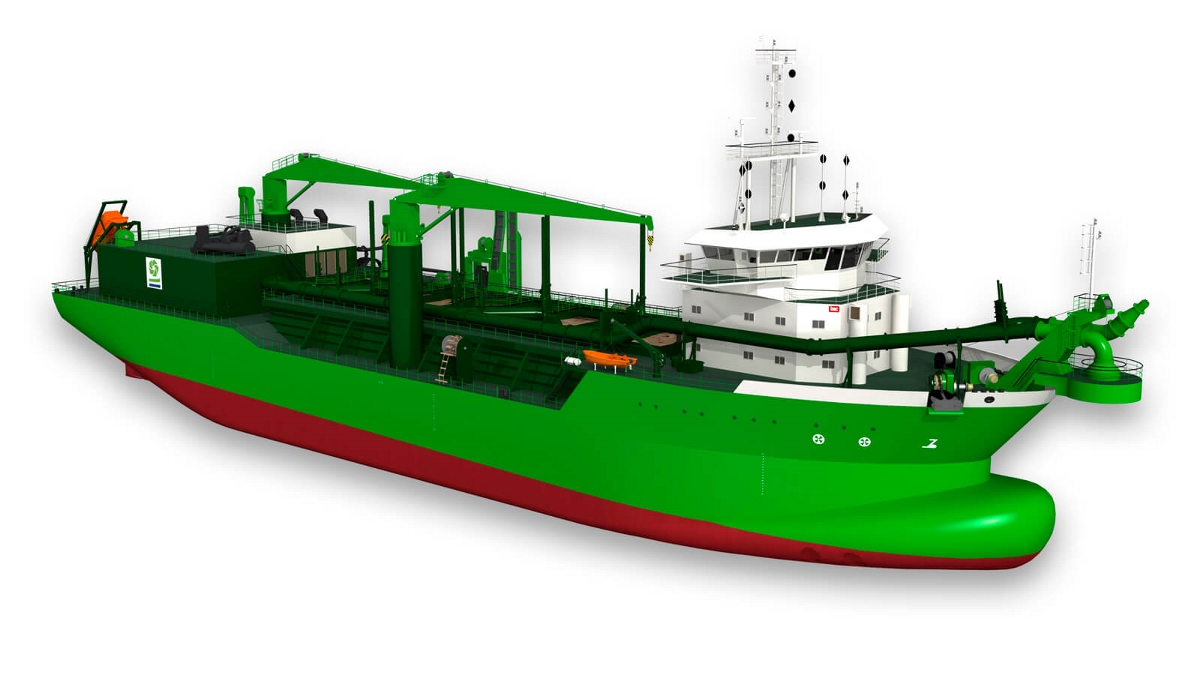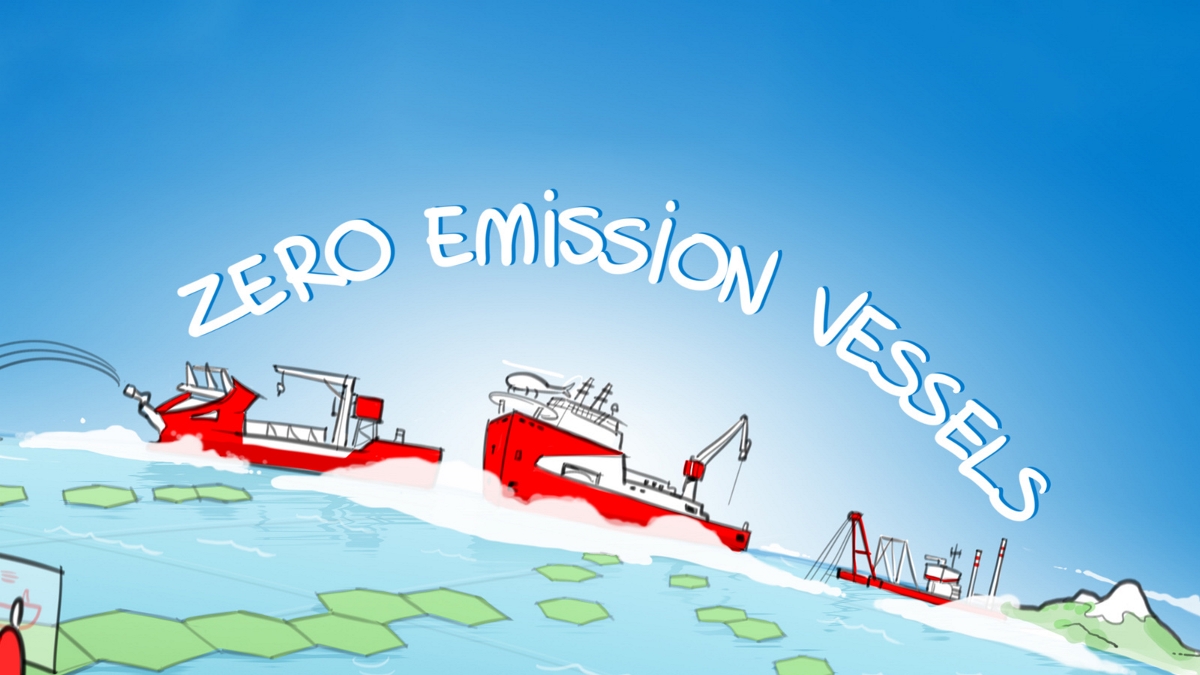LNG-powered dredgers

The international focus on the environment is increasing. The number of Emission Controlled Areas (ECAs) around the world is rising and emissions rules and regulations in shipping are becoming stricter. In 2012, Royal IHC identified the need for cleaner and more sustainable vessels and so started to investigate the possibility of running a trailing suction hopper dredger (TSHD) on liquefied natural gas (LNG).
More sustainable and affordable
In the ECAs all vessels, including dredgers, must comply with sulphur and/or NOx emission regulations. To achieve this, there are two options: use scrubbers to clean exhaust gases, or switch to cleaner fuels, such as marine diesel oil (MDO) or LNG.
The latter has a number of advantages over other types of fuels. For example, vessels that run on LNG automatically comply with the emission regulations and it is more affordable than other options.
However, there are also challenges, as using LNG as a fuel requires adjustments to a vessel’s design. LNG has a lower density, so relatively large fuel tanks are required. In addition, although LNG bunkering facilities are becoming more common, the fuel still isn’t readily available around the world.
Dual fuel engine
Therefore, a logical choice would be for a dual fuel engine built into the design of an LNG-powered TSHD. When LNG is available, the vessel will utilise it, but when the vessel is deployed in an area where there is no access to LNG, it is able to switch to diesel. The unique arrangements for the propulsion and dredge pump drive – combined with the LNG installation – will reduce fuel consumption and ensure extremely low levels of emissions.
IHC's efforts in exploring the possibility of an LNG-powered dredging vessel haven’t gone unnoticed. In April 2015, we secured an order for the construction of the world’s first two LNG low-emission dredging vessels for Belgian dredging group DEME. This makes the LNG-powered dredger a perfect example of how our forward thinking pays off. In addition, it creates opportunities to develop more of the same vessels.
Written by
Robert van de Ketterij
Managing Director of IHC MTI

Want to learn more about the transition to more sustainable vessels?
Fill out the form and one of our experts will contact you.